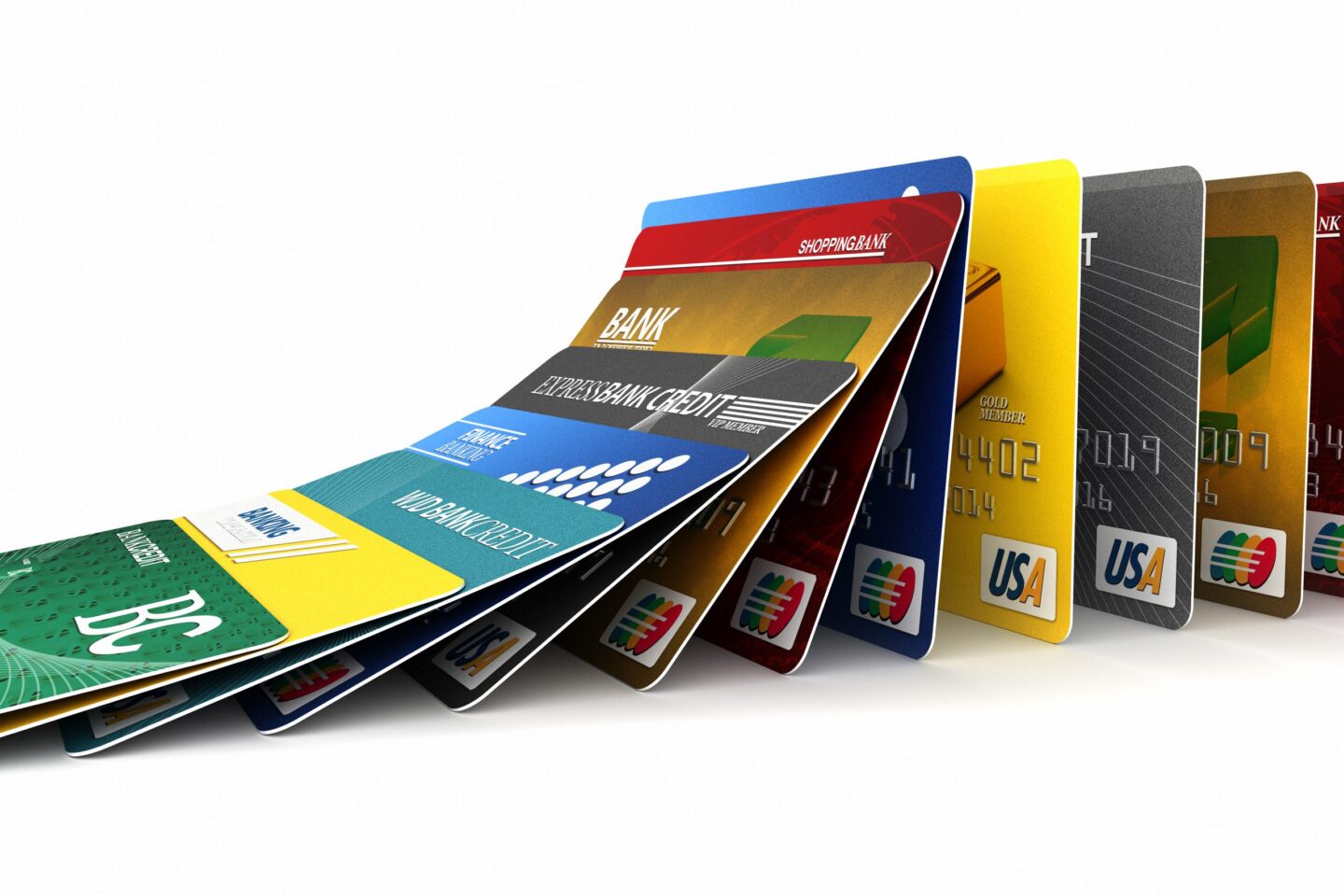Paying a high-interest rate on a credit card – or multiple credit cards – makes you feel as if you’re running on a hamster wheel with no way of escaping the descent into debt.
Then you receive an offer for a personal loan and suddenly you realize you may have found a way to pay off your credit card debt in a much quicker, less painful way.
But, as with anything, there are pros and cons to swapping credit card debt for a personal loan. Make sure you’re fully aware of what you are getting yourself into before signing on the dotted line.
Should I Get a Personal Loan to Pay Off Credit Card Debt?
Pros of Getting a Personal Loan
1. Lower interest rates
If you’re having trouble chipping away at your debt because a high-interest rate keeps you from attacking the principal balance, you could alleviate the problem by taking on a personal loan.
The interest rate you will receive on a personal loan is dependent upon your current credit health and the lender you choose to go with. Current rates are being advertised as low as 5.99 percent, but you could also find some as high as 20 percent.
Credit card rates have an even larger spread – some offer introductory rates as low as 0 percent and others cap out at the maximum rate of 29.99 percent.
The bottom line: Know what you are currently being charged and see if a personal loan can beat it.
2. Consolidated monthly payments and set repayment terms
Paying multiple credit cards at various times of the month can get tricky, sometimes leading to late or missing payments. This, in turn, can wreak havoc on your credit score.
Taking on a personal loan and paying off your credit card means you just need to make one monthly payment.
In addition, this one monthly payment is predictable – you will pay X for X amount of months before the loan is paid off. This can add stability to your monthly debt payments while also giving you a much clearer picture of what you need to do in order to reach debt freedom.
3. Diversifying your credit types
According to FICO, your credit mix determines 10 percent of your score. This means the greater diversification you have between all types of credit – credit cards, installment loans, mortgage loans, etc. – the better.
If all you have are several different credit cards, your score could be negatively impacted. Therefore, taking on a personal loan — also known as an installment loan – could give your score a small boost.
Cons of Getting a Personal Loan
1. Never addressing the debt
Paying off your credit cards with a personal loan can be a great option on the path to getting out of debt – if you agree to stop using your credit cards and address how they became an issue in the first place.
If you opt to continue using your cards, beware of the larger problem you’ll be facing down the road – credit card debt plus a personal loan to pay off.
Taking on a personal loan won’t get you out of debt, only dedication and a solid plan will.
2. No payment flexibility
A personal loan will most certainly streamline your finances by rolling everything into one monthly payment, but while credit cards offer the minimum payment option, personal loans do not. Therefore, if the fixed payment amount on your personal loan could place a strain on your budget, it might not be the best option for you.
Personal loans are not always the low-cost option – especially if your credit isn’t in top shape, to begin with. It’s important to understand exactly what the terms of your loan are and if they are considerably more favorable than your current credit card, or if the financial strain will be greater in the long run.
What is right for you?
Is taking on a personal loan to pay off your credit card debt a good option for you?
The answer is…it depends.
There are several different factors that can determine if this is the right path to go down:
- your credit and financial health
- the amount of credit card debt you carry
- the personal loan terms being offered
- your dedication to becoming debt-free – just to name a few
If you are in good standing with your credit card company, you might begin by simply asking for a lower interest rate. This could alleviate the problem without having to take on a personal loan.
Whatever you choose, make sure it will create a better financial situation for yourself over the long-term, not simply place a band-aid over the problem for now.

